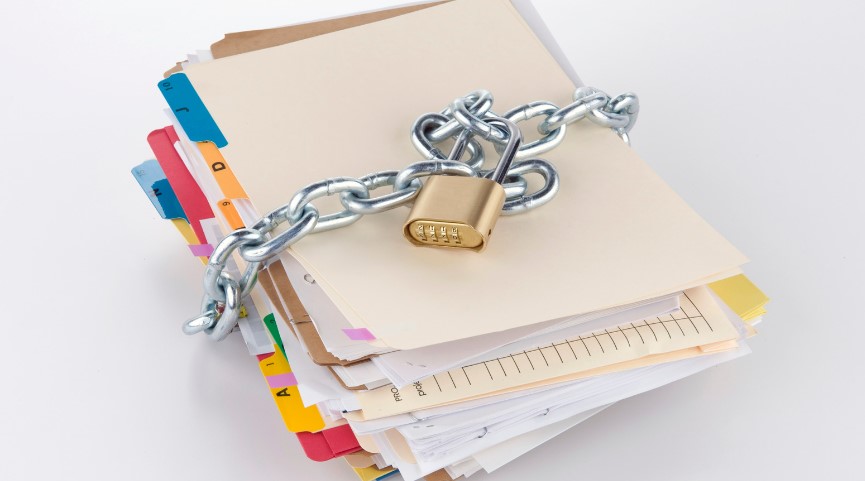Are you curious about the legal procedures for registering births, deaths and marriages? Do you want to know why it’s necessary and how it affects your life? Well, look no further because we’ve got all the information you need! In this blog post, we’ll dive into the process of registration and explore its significance in our society. So buckle up, and let’s start this informative journey together!
What is the Registration of Births, Deaths and Marriages?

The Registration of Births, Deaths and Marriages is a government system in which births, deaths and marriages are recorded. The main purpose of this system is to maintain an accurate record of these life events so that they can be used for statistical purposes and for legal or family history research.
In order to be registered, a birth, death or marriage must be reported to the relevant government authority, usually by the person who was present at the event (such as a doctor or midwife in the case of a birth or a funeral director in the case of a death). The reporting process usually involves filling out a standard form and providing supporting documentation, such as birth or death certificates. Once the registration has been completed, a copy of the record will be added to the official register, which is kept by the government department responsible for managing this type of information.
There are typically fees associated with registering a birth, death or marriage. Sometimes, these may be waived if certain criteria are met (such as if the event occurred in a remote location). In most jurisdictions, obtaining copies of registered records for a small fee is also possible.
Who Can Register a Birth, Death or Marriage?
In the United Kingdom, any of the following people can register a birth,
- Mother
- Father
- A person present at the birth
- A person for who a court order has given parental responsibility for the child.
- The child’s guardian
Any of the following people can register a death,
- A relative of the deceased
- An executor or administrator of the deceased’s estate
- The occupier of the house or premises where the death occurred, if they were aware of the death and no one else is available to register it.
To register a marriage, either of the following must be registered,
1. Both spouses must sign the registration form together. If one spouse is unable to sign, they can make a mark instead, which must be witnessed.
2. One spouse can complete and sign the registration form on their own if they have a statutory declaration from their partner stating that they are unable to sign.
How Do You Register a Birth, Death and Marriage?

If you need to register a birth, death or marriage that took place in the UK, you will need to contact the General Register Office (GRO). You can do this by phone, post or online.
When you contact the GRO, you will need to provide them with some basic information about the event that took place, as well as the date and place of registration. They will then send you a form to fill out and return.
Once the form is received and processed, you will be issued a certificate which you can use as official proof of the event.
What Information is Needed to Register a Birth, Death or Marriage?

To register a birth, death or marriage, you will need to provide the following information,
- The full name of the person being registered
- The date and place of birth, death or marriage
- The names of the parents or spouse
- The address of the registered office
- Your relationship to the person being registered
- Your contact details
Benefits of Registering Births, Deaths and Marriages

There are many benefits to registering births, deaths and marriages. These events must be registered to obtain legal recognition and documentation law. Registered events can provide key information for family history research and can also help protect the rights of those involved.
Birth registration is important for establishing identity, claiming citizenship and accessing government services. It can also help prevent child trafficking and ensure that children have access to basic rights like education and health care.
Death registration can provide crucial data for understanding public health trends and identifying potential areas of need. It can also help grieving families access death benefits and other support services.
Marriage registration can provide couples with legal recognition of their relationship and access to spousal benefits like insurance and pension plans. In some countries, it can also make it easier to dissolve the marriage if necessary.
What Documents Are Required to Register a Birth, Death or Marriage?

Required documents to register a birth, death, or marriage vary depending on the situation. In general, couples must provide proof of identity and address, such as a passport or birth certificate. They must also provide proof of their relationship, such as a marriage or civil partnership certificate. Finally, couples must provide evidence of the ceremony, such as a civil registration office order or marriage testimony ory. The documents required also depend on the type of ceremony being registered.
For example, to register a civil partnership ceremony in England and Wales, couples must notify the civil registration office in their jurisdiction. After registering their civil partnership, the couple will be issued a civil partnership certificate to keep. Note that couples may need to provide additional information if applicable. For instance, if you are registering the birth of your child born out of wedlock, you will likely need to provide an acknowledgement from your mother or legal guardian acknowledging the paternity of the child and providing consent for registration of birth.
Are There Penalties for Not Registering a Birth, Death or Marriage?
There are no penalties for not registering a birth, death or marriage in the UK. However, it is important to remember that the UK government will not recognise birth, death or marriage that is not registered. This means that if you need to register a birth, death or marriage in the future, you may have to provide additional proof of the event.
Conclusion
If you plan on having a child or recently lost a loved one, registering their death and/or birth can be very important. Not only will it help to ensure that all of the necessary paperwork is in order, but it can also provide peace of mind. By registering births, deaths and marriages in the UK, you can be sure that all of the relevant information is readily available should it be needed. Additionally, by completing this process early on, you can avoid any potential complications down the line.









Leave feedback about this